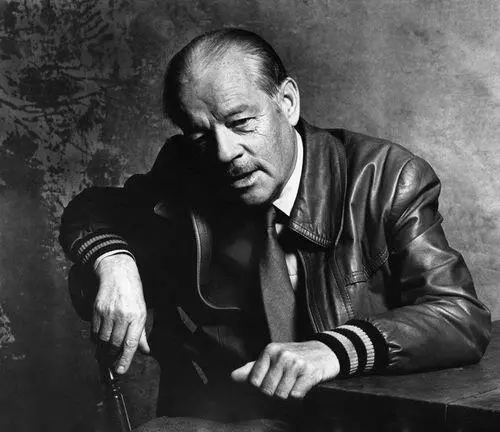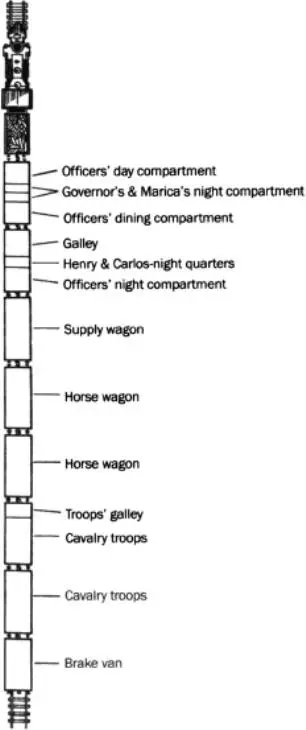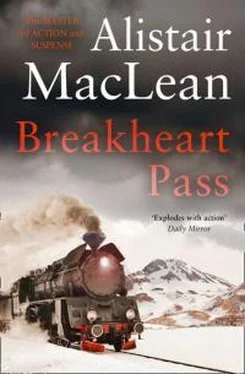Alistair MacLean
BREAKHEART PASS
1974

Alistair MacLean, the son of a Scots minister, was born in 1922 and brought up in the Scottish Highlands. In 1941 at the age of eighteen he joined the Royal Navy; two-and-a-half years spent aboard a cruiser was later to give him the background for HMS Ulysses , his first novel, the outstanding documentary novel on the war at sea. After the war, he gained an English Honours degree at Glasgow University, and became a schoolmaster. In 1983 he was awarded a D.Litt from the same university.
By the early 1970s he was one of the top 10 bestselling authors in the world, and the biggest-selling Briton. He wrote twenty-nine worldwide bestsellers that have sold more than 30 million copies, and many of which have been filmed, including The Guns of Navarone, Where Eagles Dare, Fear is the Key and Ice Station Zebra . He is now recognized as one of the outstanding popular writers of the 20th century. Alistair MacLean died in 1987 at his home in Switzerland.
John Deakin, a gunman
Colonel Claremont, US Cavalry
Colonel Fairchild, Commandant of Fort Humboldt
Governor Fairchild, the Governor of Nevada
Marica Fairchild, the Governor’s niece and the daughter of Colonel Fairchild
Major O’Brien, the Governor’s Aide
Nathan Pearce, US Marshal
Sepp Calhoun, a villain of some note
White Hand, Chief of the Paiutes
Garritty, a gambler
Rev. Theodore Peabody, Chaplain elect for Virginia City
Doctor Molyneux, US Army Doctor
Chris Banlon, Engineer
Carlos, Cook
Henry, Steward
Bellew, US Army Sergeant
Devlin, brakeman on train
Rafferty, a trooper
Ferguson, US Army Telegraphist
Carter, US Army Telegraphist
Simpson, a minor villain
Benson, a minor villain
Carmody, a minor villain
Harris
Captain Oakland, passive but relevant
Lieutenant Newell
The following bears very closely on the choice of 1873 as the date for this story.
Californian Gold Rush 1855-75
Comstock Lode discovered 1859
Disaffected Nevada Indians active 1860-80
Nevada became state 1864
Union Pacific Railway built 1869
Bonanza discovered 1873
Cholera in Rockies 1873
Development of first Winchester repeaters 1873
University of Nevada (Elko) established 1873
Disastrous Fire in Lake’s Crossing (which became Reno in 1879) 1873
NB. It might appear odd that a US Army relief mission should be sent to attend a cholera outbreak, but this is not so: the State of Nevada Health Service was not established until 1893.

The saloon bar of Reese City’s grandiosely named Imperial Hotel had about it an air of defeat, of uncaring dilapidation, of the hauntingly sad nostalgia for the half-forgotten glories of days long gone by, of days that would never come again. The occasionally plastered walls were cracked and dirty and liberally behung with faded pictures of what appeared to be an assortment of droopmoustached desperadoes: the lack of ‘Wanted’ notices below the pictures struck an almost jarring note. The splintered planks that passed for a floor were incredibly warped and of a hue that made the walls appear relatively freshly painted: much missed-at spittoons were much in evidence, while there were few square inches without their cigar butts: those lay about in their hundreds, the vast majority bearing beneath them charred evidence to the fact that their owners hadn’t bothered to stub them out either before or after dropping them to the floor. The shades of the oil-lamps. like the murky roof above, were blackened by soot, the full-length mirror behind the bar was fly-blown and filthy. For the weary traveller seeking a haven of rest, the saloon bar offered nothing but a total lack of hygiene, an advanced degree of decadence and an almost stultifying sense of depression and despair.
Neither did the majority of the customers. They were remarkably in keeping with the general ambience of the saloon. Most of them were disproportionately elderly, markedly dispirited, unshaven and shabby, all but a lonely few contemplating the future, clearly a bleak and hopeless one, through the bottoms of their whisky glasses. The solitary barman, a myopic individual with a chest-high apron which, presumably to cope with laundry problems, he’d prudently had dyed black in the distant past, appeared to share in the general malaise: wielding a venerable handtowel in which some faint traces of near-white could with difficulty be distinguished, he was gloomily attempting the impossible task of polishing a sadly cracked and chipped glass, his ultra-slow movements those of an arthritic zombie. Between the Imperial Hotel and, also of that precise day and age, the Dickensian concept of a roistering, hospitable and heart-warming coaching inn of Victorian England lay a gulf of unbridgeable immensity.
In all the saloon there was only one isolated oasis of conversational life. Six people were seated round a table close by the door, three of them in a high-backed bench against the wall: the central figure of those three was unquestionably the dominant one at the table. Tall and lean, deeply tanned and with the heavily crow-footed eyes of a man who has spent too long in the sun, he was dressed in the uniform of a colonel of the United States Cavalry, was aged about fifty, was – unusually for that time – clean-shaven and had an aquiline and intelligent face crowned by a mass of brushed-back silver hair. He wore, at that moment, an expression that could hardly be described as encouraging.
The expression was directed at a man standing opposite him on the other side of the table, a tall and powerfully built individual with a darkly saturnine expression and a black hairline moustache. He was dressed entirely in black. His badge of office, that of a US Marshal, glittered on his chest. He said: ‘But surely, Colonel Claremont, in circumstances such as those–’
‘Regulations are regulations.’ Claremont’s voice, though civil enough, was sharp and incisive, an accurate reflection of the man’s appearance. ‘Army business is army business. Civilian business is civilian business. I’m sorry, Marshal – ah–’
‘Pearce. Nathan Pearce.’
‘Of course. Of course. My apologies. I should have known.’ Claremont shook his head regretfully, but there was no trace of regret in his voice. ‘Ours is an army troop train. No civilians aboard – except by special permission from Washington.’
Pearce said mildly: ‘But couldn’t we all be regarded as working for the Federal government?’
‘By army definitions, no.’
‘I see.’ Pearce clearly didn’t see at all. He looked slowly, thoughtfully, around the other five – one of them a young woman: none wore uniform. Pearce centred his gaze on a small, thin, frockcoated individual with a preacher’s collar, a high domed forehead chasing a rapidly receding hair-line and an expression of permanently apprehensive anxiety. He shifted uneasily under the Marshal’s penetrating stare and his prominent Adam’s apple bobbed up and down as if he were swallowing with considerable speed and frequency.
Claremont said drily: ‘The Reverend Theodore Peabody has got both special permission and qualifications.’ It was clear that Claremont’s regard for the preacher was somewhat less than unlimited. ‘His cousin is private secretary to the President. The Reverend Peabody is going to be a chaplain in Virginia City.’
Читать дальше
Конец ознакомительного отрывка
Купить книгу










